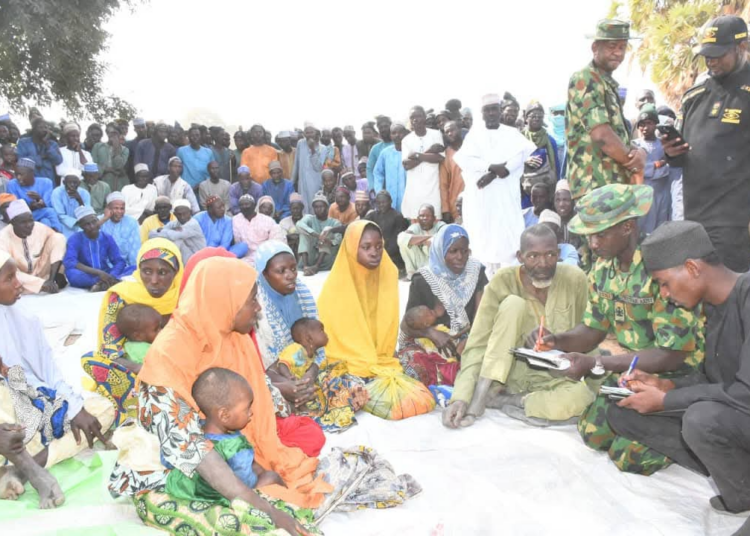People of Batsari local government area in Katsina State have expressed dissatisfaction with a recent peace deal with bandit leaders Abu Radde, Umar Black, and others, in their domain.
The deal, facilitated by the military, has drawn skepticism from locals who believed it will fail, citing the ineffectiveness of similar agreements in the past.
In an interview with LEADERSHIP, a resident, who requested anonymity, criticised the federal government for initiating the deal without adequately involving the Katsina State government.
According to him, the State governor, Dikko Radda, has consistently distanced himself from negotiating with bandits, arguing that such deal place law-abiding citizens at a disadvantage.
“Several deals like this have been made before, but they have never worked. This one won’t hold either. The federal government is wrong to proceed without the state government’s input,” the resident stated.
He also questioned the significance of the weapons surrendered by the bandits. “Four AK47 rifles from a group with hundreds of guns? It’s hardly a meaningful step,” he added.
The peace deal and arms surrender ceremony, held on January 19, 2025, in Batsari town, was attended by stakeholders, including military representatives, to ensure transparency. The bandits laid down four AK47 rifles and released 15 captives, including three men, eight women, and four children.
According to military sources, the development resulted from intense operations under the combined forces of Operation Fasan Yanma. It was emphasised that this was not a peace negotiation but a step towards complete disarmament and the release of all kidnap victims.
The surrendered weapons are now in the custody of the 17 Brigade, Nigerian Army, while the freed captives have been transferred to the local government authorities for rehabilitation.
Katsina State Commissioner for Information and Culture, Bala Zango, reiterated the state government’s stance against negotiating with bandits.
“The state government was not part of any peace deal. Our position remains clear, anyone who renounces violence and surrenders their weapons will be considered, but we will not negotiate with bandits,” he said.
Reports indicated that the deal followed a peace meeting in Kofa village, near Batsari town, attended by military officials, DSS representatives, traditional leaders, and residents. Some participants described the event as a positive step, with bandits pledging to cease attacks and cooperate with local communities.
However, scepticism remains. “The bandits demanded safe access to our communities and promised to stop attacks, but we’ve heard such promises before,” said another resident.
Military sources have attributed the peace deal to sustained pressure from security forces. The Public Relations Officer of the 17 Brigade, Nigerian Army, Lt. Lawal, commended the operation’s success and expressed hope that it would pave the way for long-term peace in the region.
While the federal government and military’s efforts to curtail banditry in Katsina State have seen some progress, the reluctance of residents and the state government to fully embrace the recent peace deal underscores deep-seated concerns about its sustainability.
The effectiveness of the approach remains to be seen as stakeholders continue to monitor developments.





